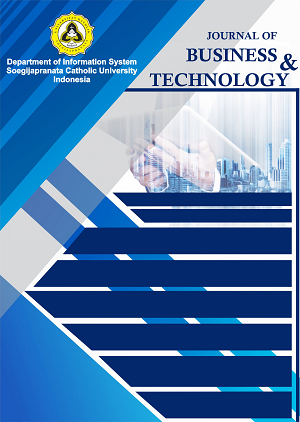Design and Development of Espresso-Based Drink Brewing Simulation Game
Abstract
Keywords
Full Text:
PDFReferences
T. Halstead, “Coffee: World Markets and Trade,” Dec. 2022. [Online]. Available: https://apps.fas.usda.gov/psdonline/circulars/coffee.pdf
International Coffee Organization, “Total production by all exporting countries,” 2021, Accessed: Feb. 06, 2023. [Online]. Available: ico.org/
A. Rahmanulloh, “Indonesia Coffee Annual Report 2022,” 2022. Accessed: Nov. 17, 2022. [Online]. Available: https://apps.fas.usda.gov/newgainapi/api/Report/DownloadReportByFileName?fileName=Coffee%20Annual_Jakarta_Indonesia_ID2022-0014
A. Rahmanulloh, “Indonesia Coffee Annual Report 2017,” 2017. Accessed: Nov. 17, 2022. [Online]. Available: https://apps.fas.usda.gov/newgainapi/api/Report/DownloadReportByFileName?fileName=Coffee%20Annual_Jakarta_Indonesia_5-15-2017
N. Myhrvold, “Coffee,” Encyclopædia Britannica. Encyclopædia Britannica, inc., Nov. 2022. Accessed: Jun. 30, 2023. [Online]. Available: https://britannica.com/topic/coffee
US Department of Health and Human Services and others, “US Department of Agriculture 2015–2020 Dietary Guidelines for Americans—health. gov.” 2018.
A. Illy and R. Viani, Espresso coffee: the science of quality. Academic Press, 2005.
K. Sinnott, The art and craft of coffee: an enthusiast’s guide to selecting, roasting, and brewing exquisite coffee. Quarry Books, 2011.
T. Susi, M. Johannesson, and P. Backlund, “Serious games: An overview,” 2007.
T. Brenda Chandrawati, A. A. P. Ratna, and R. F. Sari, “Implementing Bio-Inspired Algorithm for Pathfinding in Flood Disaster Prevention Game,” in Computational Science and Technology: 6th ICCST 2019, Kota Kinabalu, Malaysia, 29-30 August 2019, 2020, pp. 23–31.
A. E. J. van Gaalen, J. Brouwer, J. Schönrock-Adema, T. Bouwkamp-Timmer, A. D. C. Jaarsma, and J. R. Georgiadis, “Gamification of health professions education: a systematic review,” Advances in Health Sciences Education, vol. 26, no. 2, pp. 683–711, 2021, doi: 10.1007/s10459-020-10000-3.
Y. Zhonggen, “A meta-analysis of use of serious games in education over a decade,” International Journal of Computer Games Technology, vol. 2019, 2019.
T. Anastasiadis, G. Lampropoulos, and K. Siakas, “Digital game-based learning and serious games in education,” International Journal of Advances in Scientific Research and Engineering, vol. 4, no. 12, pp. 139–144, 2018.
B. Nicoll, B. Keogh, B. Nicoll, and B. Keogh, The Unity game engine and the circuits of cultural software. Springer, 2019.
A. Jungherr and D. B. Schlarb, “The extended reach of game engine companies: How companies like epic games and Unity technologies provide platforms for extended reality applications and the metaverse,” Soc Media Soc, vol. 8, no. 2, p. 20563051221107640, 2022.
J. Hocking, Unity in Action, Third Edition: Multiplatform game development in C#. Manning, 2022.
E. Purnamasari, E. W. Nugroho, A. D. Widian, S. Kom, and M. Kom, “The Introduction of Classic Batik Motif to the Community Through Game,” Sisforma, vol. 4, no. 1, 2017.
A. Juliani et al., “Unity: A general platform for intelligent agents,” arXiv preprint arXiv:1809.02627, 2018.
S. Kosasi, “Penerapan Rapid Application Development Dalam Sistem Perniagaan Elektronik Furniture,” Creative Information Technology Journal, vol. 2, no. 4, pp. 265–276, 2015.
I. Ziman, “RAD applied in the context of investment banking trading systems development,” Informatica Economica, vol. 15, no. 4, p. 134, 2011.
N. D. Pribadi, “PERANCANGAN APLIKASI GAME EDUKASI MERACIK BERBAGAI VARIAN KOPI ‘SI BARISTA,’” Universitas AMIKOM Yogyakarta, 2021.
R. Budiman, “Aplikasi Game Bergerak Pembelajaran Meracik Varian Kopi,” 2017.
DOI: https://doi.org/10.24167/jbt.v5i1.10489
Refbacks
- There are currently no refbacks.
e-ISSN: 2776-0332 | View My Stats



